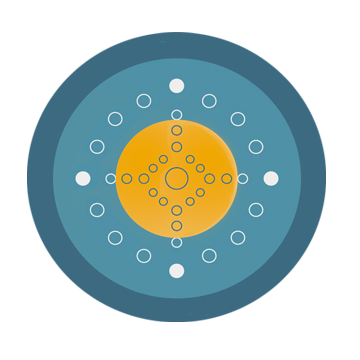Bill’s Professional Journey
Today, I am no longer searching.
I continue to be curious – and I still very much enjoy learning – but it’s not driven by a feeling that ‘something is missing.’ Instead, there is a sense of a never-ending integration and deepening of the process.
I would love this to be true for you, too.
More than forty years ago I realised that I really had no idea how to live life well and, not knowing where to turn for answers, I began an intensive search. The first immensely fertile ground that I explored was the work of the Swiss psychiatrist, Carl Jung. His insights ignited a passion within me to help others to explore and thus transform their lives, and I knew I needed to pursue this work professionally. So once I had completed my degree in microbiology, I went back to university to train as a clinical psychologist. Many answers emerged, my life improved significantly and I went on to establish busy private practices in Cape Town and later in Harley Street, London
Clinical psychology certainly had much to offer but something still felt incomplete. I wanted to deepen my understanding of the treatment of emotional and spiritual difficulties and so I did this by training in several specialised forms of psychotherapy:
Transpersonal Psychotherapy (a therapeutic approach that integrates a spiritual perspective)
Cognitive Behavioral Therapy (CBT)
EMDR (Eye Movement Desensitization and Reprocessing)
Emotional Freedom Techniques (EFT)
Matrix Reimprinting
Many more gems were unearthed but I knew that the search was far from over. Part of the problem was that clinical psychology and most forms of psychotherapy focus on mental illness. I wanted a much broader focus that included answers to my essential question:
‘How can we live well in a busy, complex, rapidly changing and uncertain modern world?’
Coaching was one of those professions that had a more positive approach and it became a valuable part of my work. But, even with all of this, I still felt that my understanding was far from complete and so my search for a deeper understanding continued. Precipitated by a retreat with Ram Dass and lectures by the Dalai Lama in London, I began to immerse myself in both Western and Eastern spiritual traditions. I devoured work by Jack Kornfield, Joseph Goldstein, Tara Brach, Pema Chodron, Thich Nhat Hanh, Adyashanti, Loch Kelly, Tenzin Wangyal Rinpoche and many others. I went on retreats, including those with Atum O’Kane (a Sufi Master), Sogyal Rinpoche and Eckhart Tolle, and eventually uncovered the invaluable realisation that: within each of us lies a profound presence that is open, peaceful, loving, wise and fundamentally content.
In the late 1990s, my fascination with the therapeutic effects of nature and a curiosity about indigenous shamanic traditions led me to train as a Vision Quest Guide in the USA and later as a Doctor of Traditional African Medicine in Botswana, an African shamanic tradition. Although I no longer practice in a traditional manner, these experiences enriched my approach enormously. Through them I learned:
The profound healing power of nature
The vital importance of being mindful of the body
An acute awareness of subtle energy
Numerous tools to ground, balance and connect with various forms of subtle energy
How to access intuitive guidance through the body
The importance of ritual
And, much else besides
Over the last twenty years, I have continued to explore widely, including:
IFS (Internal Family Systems, a highly effective method of working with parts of our psyche)
Polyvagal Theory and its implications (understanding fight, flight, freeze, fawn, collapse responses as well as inducing a sense of well-being)
Radical acceptance and Self-compassion
Brain asymmetry (Iain McGilchrist)
Breathwork
Bön, the traditional spiritual and shamanic practice of Tibet
Celtic Christianity (St. Bridget of Kildare, et al)
Christian mysticism (Meister Eckhart, Bede Griffiths, Matthew Fox and John Philip Newell)
Islamic mysticism (Rumi, Hafiz, Ibn ‘Arabi)
And, I continue to deepen:
Meditation
Mindfulness
Non-dual awareness (Adyashanti, Tenzin Wangyal Rinpoche, Rupert Spira)
And, most importantly, the integration of all I have explored in everyday life.


